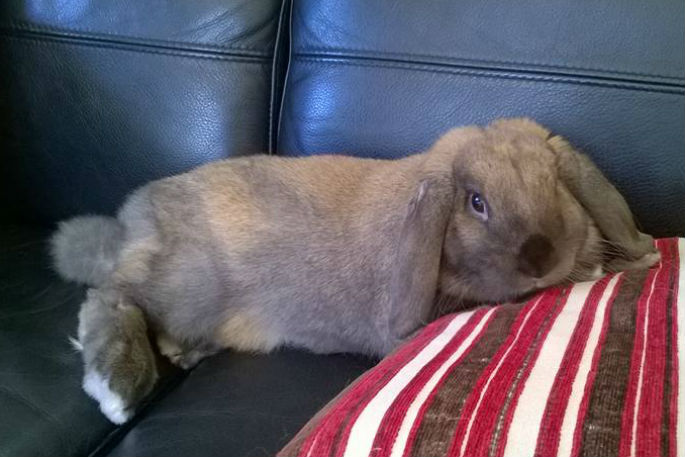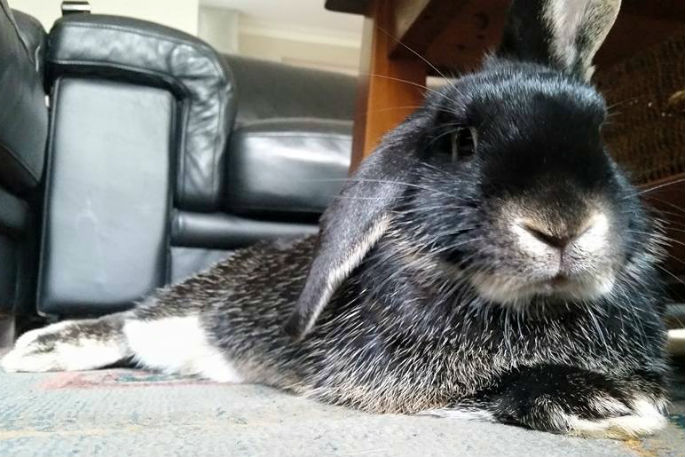Pet rabbit owners are petitioning the government against importing any more rabbit calcivirus or rabbit haemorrhagic viruses to knock down feral rabbit numbers.
The Ministry of Primary Industries has budgeted $240,000 to be spent during the current financial year on a new high virulence RHDV strain (called K5) that partially overcomes resistance to RHDV and is expected to increase rabbit kills by 20-30 per cent.
The MPI website states approval to release RHDV K5 in Australia is been applied for and should be granted within the next 12 months. Rabbit stakeholder groups in New Zealand are planning to seek approval for the release of RHDV K5 into New Zealand. The proposed project will provide New Zealand stakeholders and landowners with new information and guidelines that will ensure the timing and method of release adopted for the improved RHDV strain achieves the best possible outcomes and maximises future long term benefits for farmers.
For people who live with house rabbits its life threatening – for their rabbits.
'Most people what have rabbits class them as family and we are trying to stop this,” says petition organiser Kathleen Brinsdon.
'There must be other ways they can get rid of wild rabbits instead of the virus as they are just going to become immune to this new virus like the last one, and then they will try bring out another virus.”
'Most people who have rabbits cherish them like family members. Our rabbits are not pests like wild rabbits but their RCD deaths are the same. The new virus must not be introduced to New Zealand, especially when the vaccine is currently unavailable outside of Europe.”
The current vaccine is only 80 per cent effective against the current virus says Kathleen. Wild rabbits are becoming immune to the current virus and introducing a new virus puts all pet rabbits at risk.
There are about 116,000 rabbit house pets in New Zealand. Intelligent, like dogs, and trainable with a clicker, says Tauranga house rabbit owner Holly Johnson.
'You are supposed to get them fixed,” says Holly. 'The females can die of uterine cancer by their fifth birthday, a 95 per cent chance or something - so it's important you get them fixed.
'The live almost as long as a cat and they are easier to litter train than cats.”
Previously known as the rabbit calcivirus illegally imported in 1997 to deal with a feral rabbit problem in South Canterbury, the RHDV1 virus is now joined by more up to date strains from which there is no protection for any rabbit.
Rabbit owners are petitioning the government to prevent further use of rabbit haemorrhagic viruses to control feral rabbits due to the indiscriminate danger the viruses represent to the lives of the 116,000 pet rabbits currently contentedly munching on computer cables, speaker cables and low level book spines in households across the country.
Rabbit owners are petitioning the government to initiate and facilitate the development of vaccines or a trivalent vaccine for Rabbit Haemorrhagic viruses present and planned to be present in both New Zealand and Australia.
And to stop the planned release of the RHDV1a-K5 virus in New Zealand at least until a scientifically, independently peer-reviewed proven vaccine is available.
'It's a resilient virus and it can be easiy, easily transferred,” says Holly. 'If you go anywhere near an infected rabbit or walk through a field where the virus has been laid and you walk into someone's home that has a rabbit - that's the virus transferred, and I think it can survive freezing temperatures for up to three months.”




1 comment
leeches
Posted on 22-01-2017 23:28 | By Captain Sensible
I'd rather see a virus that got rid of politicians.
Leave a Comment
You must be logged in to make a comment.